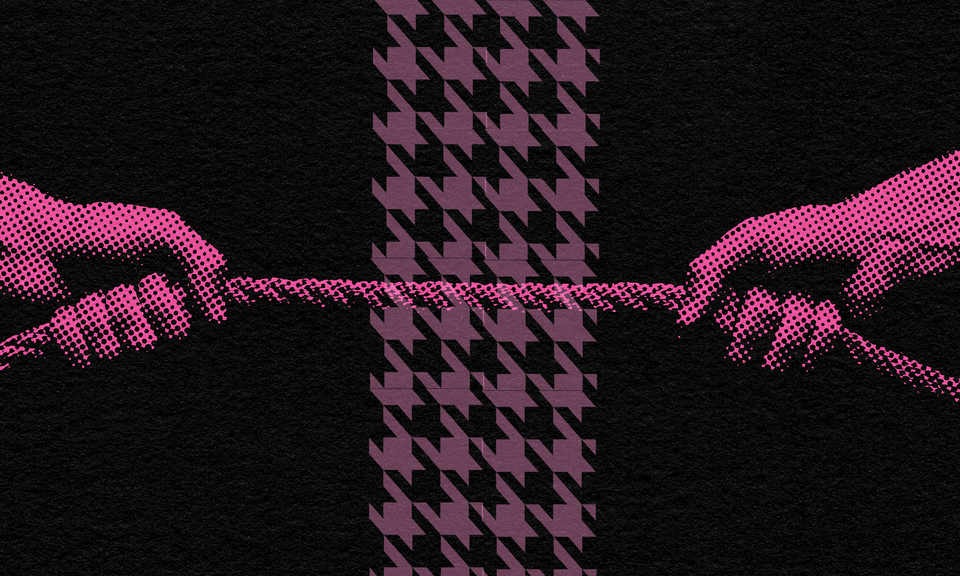The cost of conflict (and what to do about it)

I’ll never forget the day a client called my boss to tell him that I was the reason their project was failing.
These weren’t just any clients. They were difficult from the start. The kind who missed deadlines, argued about scope, ignored feedback, and made collaboration feel like combat. Every meeting was a battle for clarity, and every milestone was a negotiation. Still, I kept my cool. I documented everything. I raised issues early. I shared every update with my boss, because something in my gut told me I might need the receipts one day.
Then that day came.
When my boss told me that the clients had called him directly, behind my back, to say that I was the problem, my chest went tight. I felt betrayed. Lied about. Like all their mistakes had been repackaged as mine. These weren’t just bad collaborators anymore; they were trying to get me fired!
Thankfully, my boss already knew the truth. He’d seen my reports, my notes, my consistency. He told me he didn’t believe them, but he still had to say what they said out loud. And hearing it still hurt. I cried, right there at my desk, because it felt personal. I wasn’t just fighting for a project. I was fighting for my integrity in a job I loved—a job I knew I was good at.
That’s the kind of conflict that leaves a mark. It doesn’t just make you angry; it makes you question who you can trust, how much you can take, and why you even bother to care so much.
Unfortunately, this kind of thing happens to project managers all the time. We’re often the scapegoats for other people’s problems as the ones who try to bring accountability, honesty, and clarity into spaces that don’t always value those things. We call out misalignment, and sometimes that makes people uncomfortable. We surface issues early, and sometimes that gets us labeled as “negative.” We ask people to do what they said they’d do, and somehow, we end up being the bad guy.
That’s the reality of being a PM: we deal in truth. We solve problems by confronting them head-on. And not everyone is built for that level of honesty.

Conflict follows you
This weekend, I found myself in a different kind of conflict: personal, not professional. I tried to approach someone to understand why they were behaving the way they were, and instead of meeting me halfway, they threw it back in my face. It escalated quickly. I didn’t love how I responded, and I’m still unpacking why. But the outcome was clear: it’s over. The relationship ended.
It’s strange how conflict can leave you feeling both justified and gutted at the same time.
Different kind of conflict, same aftermath. The emotional residue of it all—the self-questioning, the overthinking—follows you. It seeps into your work, your patience, your focus. And when you’re a project manager, you don’t have the luxury of checking out. You’re the steady hand. The translator. The person expected to absorb conflict and turn it into clarity.
But that comes at a cost.
Why conflict feels so bad (even when you’re right)
Being right doesn’t protect you from the emotional side of conflict. In fact, it can make it worse.
When you know you’ve done everything correctly and someone still refuses to see it, your brain goes to war with itself: Do I defend myself harder? Do I stay quiet and look weak? Do I keep caring this much?
Conflict touches something primal: the need to be understood. When that need isn’t met, it feels unfair, invalidating, and exhausting.
PMs, especially, are wired to fix things. But not all problems can be solved with a timeline, a task, or a tool. Emotional conflicts don’t fit neatly into Jira tickets. They require empathy, self-awareness, and boundaries.
Reframing conflict as data (not damage)
It took me a long time to learn that not all conflict is destructive. In fact, some of it is diagnostic.
When something blows up, it’s rarely about the surface issue. It’s about what wasn’t said, what wasn’t clarified, or what wasn’t acknowledged early enough. Conflict is a mirror reflecting misalignment of expectations, roles, values, or priorities.
When I started to look at conflict this way, I stopped taking it as a personal attack and started treating it as information. Not comfortable information, but valuable.
Ask yourself:
- What is this conflict actually revealing about expectations (mine and theirs)?
- Where did communication break down, and what systems allowed that to happen?
- What values or boundaries are being tested here?
- What can I take from this to prevent the same pattern from repeating?
Seeing conflict as data doesn’t mean you’re emotionally detached; it means you’re emotionally aware. You’re letting the facts, not the feelings, guide your next step.
And once you do that, conflict becomes less of a threat and more of a teacher. It shows you where to draw boundaries, where to improve communication, and where to let go.
How to handle conflict like a human (not a hero)
Conflict isn’t just something you navigate. It’s something you practice. Every moment of tension gives you a chance to decide who you’re going to be in it. As project managers, our behaviors in those moments matter more than any process or tool. They set the tone for how others respond and how we recover.
The goal isn’t to avoid conflict or “win” it. It’s to stay grounded in behaviors that help you move through it with self-respect and clarity, even when the outcome isn’t what you wanted. Sometimes that means resolving it together. Sometimes it means resolving it within yourself.
Here’s what that looks like in practice:
- Pause before you perform.
You don’t have to fix things in real time. Step back, breathe, and get curious instead of defensive. A calm pause is often the first sign of leadership. - Seek truth, not victory.
Winning an argument rarely builds trust. Focus on uncovering what’s true: what actually happened, what people need, and what can change next time. - Document without defensiveness.
Keep your receipts, but use them for transparency, not combat. The goal isn’t to prove you’re right; it’s to keep the story honest and objective. - Protect your peace.
You can’t control how others show up, only how you respond. Don’t absorb what isn’t yours. It’s okay to disengage when the cost of staying is too high. - Reflect and reset.
After the dust settles, take inventory. What did you learn about your boundaries, your patterns, or your triggers? Conflict handled well makes you wiser for the next one.
At the end of the day, conflict won’t always be resolved, and that’s okay. What matters most is how you show up in it. If your behavior reflects honesty, empathy, and accountability, you can walk away knowing you led with integrity, even if the situation didn’t tie up neatly. That’s real resolution.
Closing thoughts
Conflict is inevitable in project management, but how you handle it is what defines your leadership. You can be transparent, prepared, and professional and still get knocked down by someone else’s avoidance or ego. That doesn’t make you bad at your job. It makes you human.
The truth is, you can’t lead without friction. You can’t improve without disagreement. You can’t build trust without a little tension along the way. But you can choose to engage with conflict from a place of integrity: to see it, name it, and work through it without letting it consume you.
The goal isn’t to win every argument. The goal is to stay true to yourself, to keep showing up with empathy, even when it’s uncomfortable. That’s how you turn conflict into growth for yourself, for your team, and sometimes, even for the people who caused it.
TL;DR
Conflict will happen at work, at home, and even in your own head. It can derail projects and rattle your confidence, or it can help you see what needs to change. The difference is how you carry it. You don’t have to win every battle. You just have to stay grounded, keep learning, and walk away with your integrity intact.


Member discussion